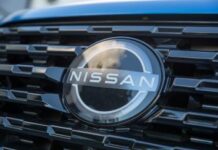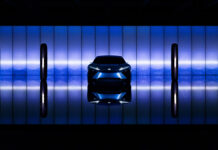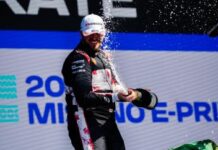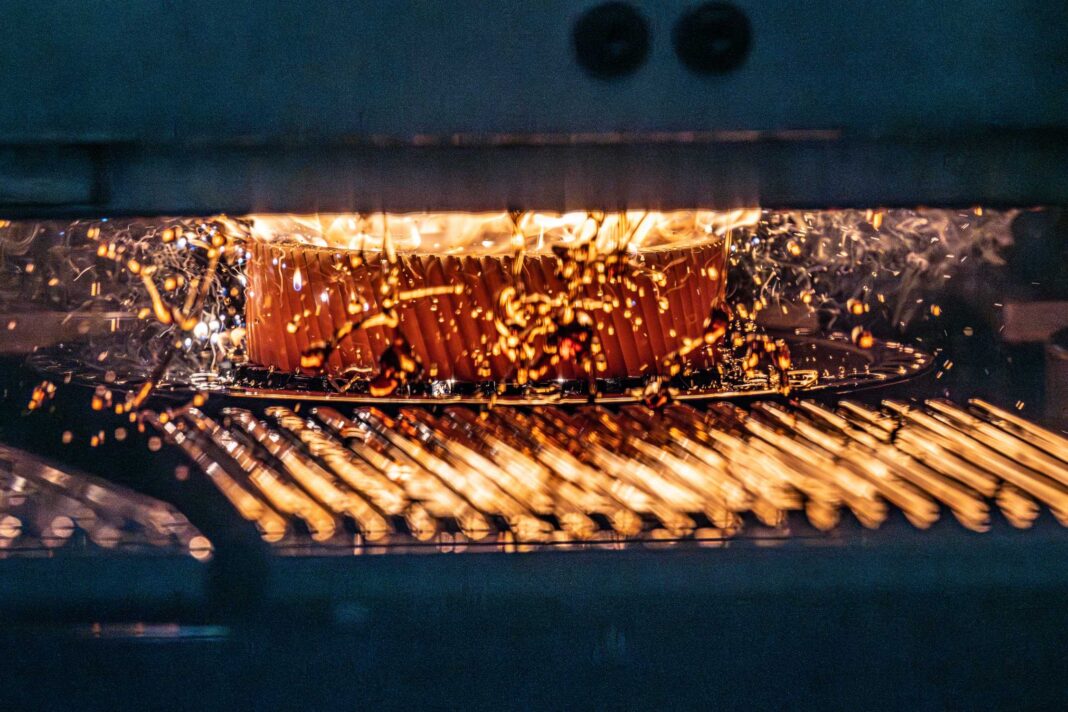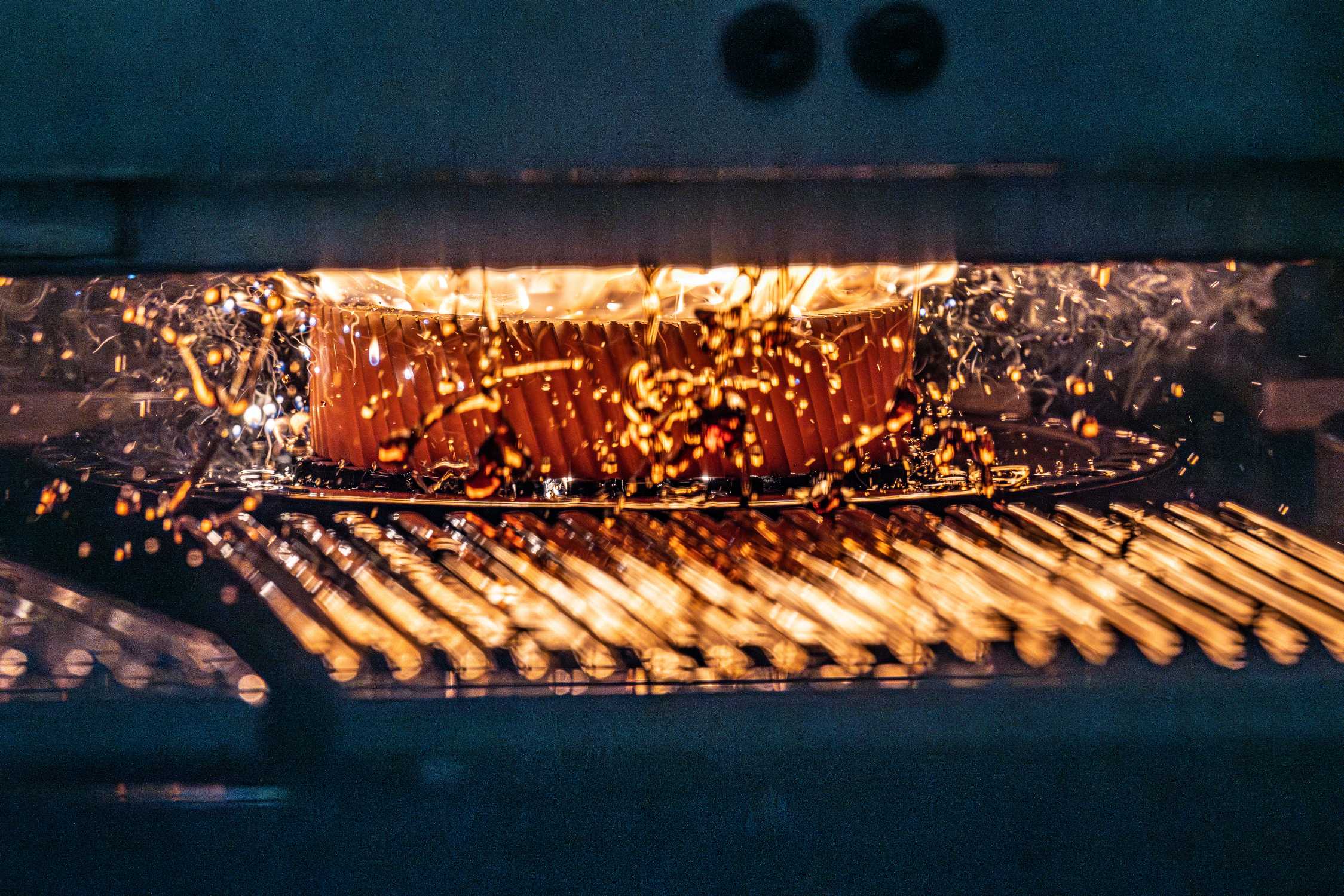
Dingolfing. For the first time, chassis and drive
component production in Plant 02.10 at the BMW Group site in
Dingolfing is operating an electrically heated ring hearth furnace.
Compared with its conventional gas-powered equivalent, the latest
electric furnace currently saves some 300 tonnes of CO2 a year.
“The new furnace has a planned service life of over 40 years, so it’s
a future-focused piece of equipment that sets the course for our
journey to net zero,” said Marc Sielemann, responsible for quality and
production of powertrains, chassis and brakes with Purchasing, and
director of the Dingolfing component plant 02.10. The BMW Group has
set itself the target of being climate neutral along the entire value
chain by 2050 at the latest.
With its innovative power-to-heat technology, the hardening furnace
came at an investment of approx. €7 million.
New hardening furnace for e-drive components
Plant 02.10 in Dingolfing produces chassis and drive components for
BMW, MINI and Rolls-Royce vehicles. To make them more hard-wearing,
the parts are hardened in special furnaces. As electric mobility ramps
up, more and more components are being manufactured, including for
electric drives. Existing systems are gradually reaching the limits of
their capacity, so a new ring hearth furnace with a fixture hardening
press was needed.
Used to harden gear wheels for electric transmissions, the innovative
system has production capacity of approx. 960,000 spur gears a year.
What’s special about it is that unlike the two existing furnaces,
which are powered by gas, a fossil fuel, this new solution is for the
first time powered by electricity. Rather than using 33 gas flames in
ceramic-jacketed pipes, as the older model does, the new furnace uses
the same number of electric heating elements to heat up to 900 degrees Celsius.
Lower CO2 emissions
Electric heat generation – or power-to-heat technology, as it is
called – saves vast amounts of greenhouse gases, which are harmful to
the climate. By running on electricity, the new hardening oven emits
approx. 300 tonnes less CO2 a year than its gas-powered equivalent.
“Energy-intensive power-to-heat systems like this new electric ring
hearth furnace support the decarbonisation of heat generation – an
essential aspect of climate protection. They generate heat by
climate-friendly means and can be powered among other things with
excess energy from renewables,” said Sielemann. So, the new
power-to-heat furnace not only reduces gas consumption at Plant
Dingolfing but also supports the integration of renewable energies
into the electricity grid. It is another component in BMW Group Plant
Dingolfing’s transformation to a sustainable BMW iFACTORY. “For the
future,” said Sielemann, “we are looking into converting the remaining
hardening furnaces to electricity as well.”
Caption
Image 01: The new electrically powered
hardening furnace in the BMW Group’s component plant 02.10 in Dingolfing.
If you have any questions, please contact:
Julian Friedrich, BMW Group Plant Dingolfing, Head of Corp. Communication
Phone: +49 8731 76 22020, E-Mail: Julian.Friedrich@bmw.de
Thomas Niedermeier, BMW Group Plant Dingolfing, Corporate
Communication
Phone: +49 8731 76 27666, E-Mail: Thomas.Niedermeier@bmw.de
Internet: www.press.bmwgroup.com, www.bmw-werk-dingolfing.de
Instagram: https://www.instagram.com/bmwgroupwerkdingolfing/
E-mail: presse@bmw.de
BMW Group Plant Dingolfing
Plant Dingolfing is the BMW Group’s largest European production site.
Around 1,500 BMW 4, 5, 6, 7 and 8 Series cars, as well as the new
fully electric BMW iX, come off its production lines every day. A
total of around 282,000 vehicles were built at the plant in 2022.
More than 18,000 people currently work at the site and 850
apprentices are being trained in 15 occupations. This makes the BMW
Group site in Dingolfing not only by far the region’s biggest
employer, but also one of the country’s largest industrial production
sites and vocational training facilities.
In addition to cars, vehicle components such as pressed parts and
chassis and drive systems are also produced in Dingolfing. Component
plant 02.20 is also home to the company-wide Competence Centre for
E-Drive Production, which supplies the BMW Group’s vehicle plants
worldwide with electric motors and high-voltage batteries for
production of plug-in hybrids and pure electric models.
The car bodies for all Rolls-Royce models are also built at the site.
The so-called Dynamics Centre, a large storage and transshipment
facility at the heart of the BMW Group’s central aftersales logistics,
provides the global BMW and MINI retail organisation with original
parts and equipment.



